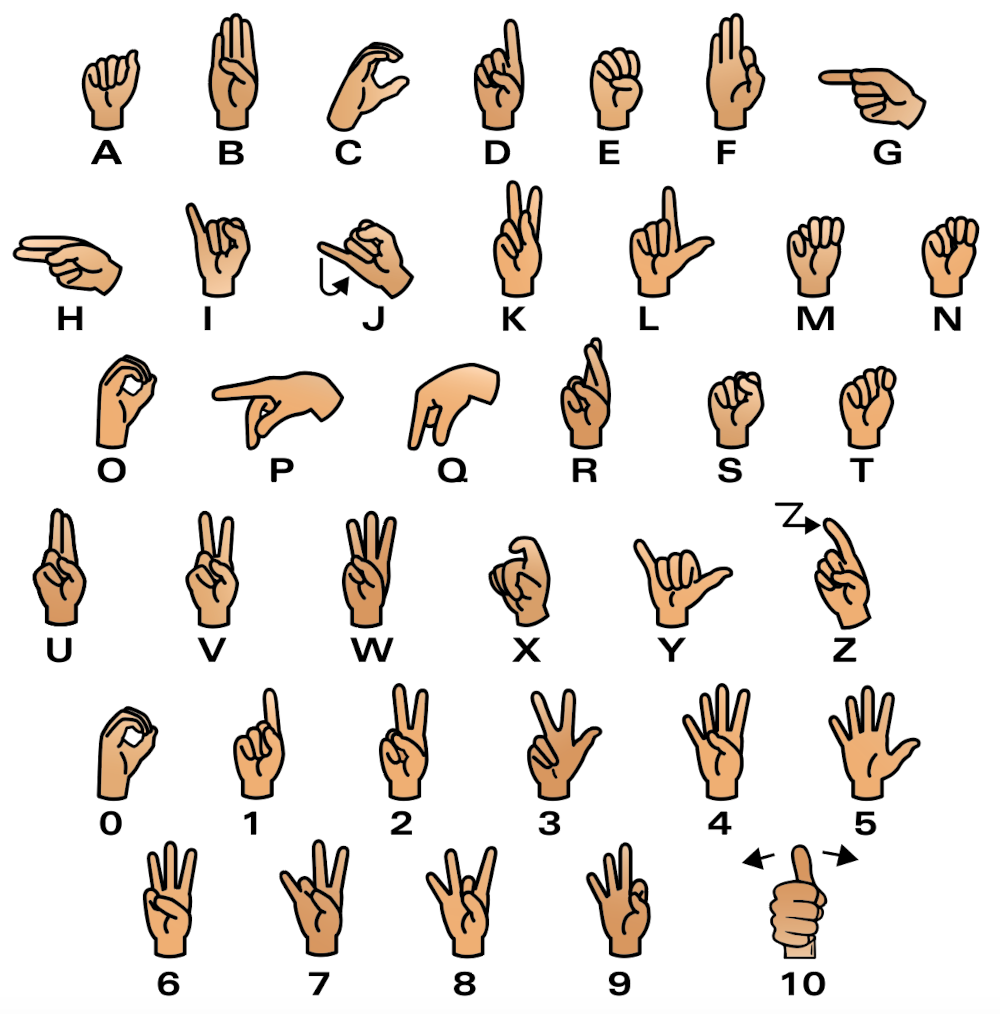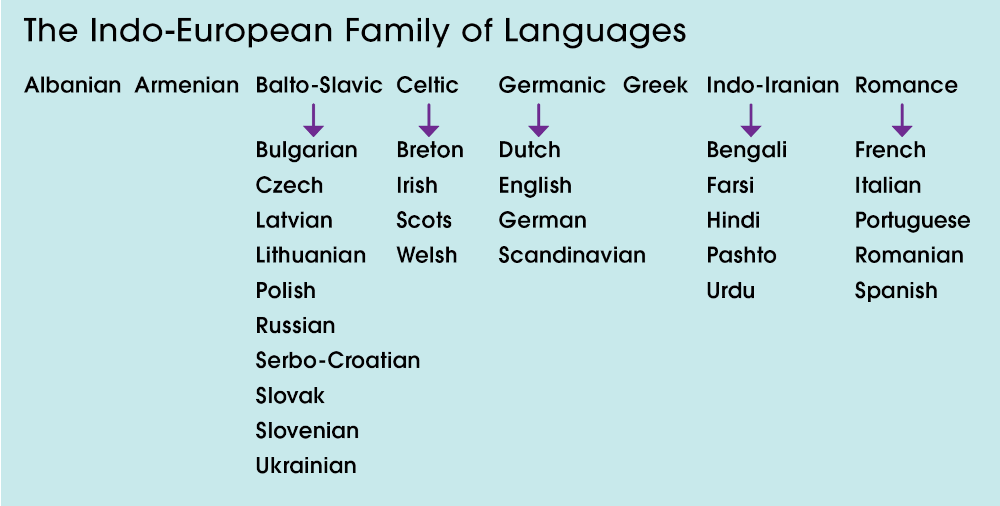WOC 550
Page 550
Student Almanac
Language 551
Science 555
Mathematics 560
Geography 567
Government 581
History 584
Mathematics 560
Geography 567
Government 581
History 584
Government 581
History 584
WOC 551
Page 551
Language
The language pages in this section of your handbook should be both interesting and helpful. You can look through this section when you want to find out how English came to be, explore words from other languages, or send a “signed” message across a noisy room.
Manual Alphabet (Sign Language)

WOC 552
Page 552
The History of the English Language
Old English
English is part of the Indo-European group of languages. When some of the ancient Indo-Europeans migrated west, they developed a number of Germanic dialects. It was these people who invaded the British Isles about 1,500 years ago, bringing with them what we call Old English—the earliest version of English. These Germanic Anglo-Saxons were warriors, but they enjoyed puns and creating compound words. They called the sea the whaleroad (hranrad) and combined the word for nose and hole to give us nostril.
Half of our everyday words come directly from Old English. Here are some of them: hand, field, tree, house, sun, day, drink, sit, love, and live.
Invasions
Two more invasions affected English. Beginning in 787, the Vikings raided their distant cousins in England, bringing with them most of the words in English that begin with sk- (skin, sky, skirt) and other common words like die, freckle, and window. Then in 1066, William of Normandy arrived in England, bringing with him knights, clergy, and government officials who spoke French and Latin.
English survived, but it gained a whole new French vocabulary in government (tax, parliament, royal), in religion (sermon, prayer), in building (ceiling, porch, curtain), in law (judge, attorney, crime), and so on.
Middle English
English had reasserted itself as a strong language by the time Geoffrey Chaucer wrote the Canterbury Tales and his other main works (1375–1400). Here are the two opening lines to the Canterbury Tales (with a translation in italics):
Whan that Aprill with his shoures soote,
(When April’s sweet showers)
The droghte of March hath perced to the roote,
(Have pierced March’s drought all the way to the root)
In Chaucer’s day, there began a change in pronunciation. The change is called the Great Vowel Shift. Chaucer would have pronounced hand with the vowel sound of our word father and ride like our reed.
WOC 553
Page 553
Early Modern English
The Renaissance (1475–1650) brought many new ideas and places into the world of English speakers. English borrowed words from the Americas (tomato, tobacco, alligator, squash) and from new learning (thermometer, hydrant, algebra). The printing press made two great works of Early Modern English available to many English speakers: the English Bible (especially the King James Version) and the plays of William Shakespeare (1590–1616).
William Shakespeare had a tremendous vocabulary. He used words in new ways (assassinate) and created more than 1,700 new words (obscene, submerged) and phrases like “vanished into thin air.”
Modern English
English continues to grow and to change. (English has the largest vocabulary of any modern language.) In the United States, Modern English has been influenced by every aspect of the American experience. This experience includes the contribution of African Americans: Today, Black English Vernacular is an important variety of English. It also includes the contributions of a constant flow of immigrants and their languages (including Spanish, Yiddish, and many other languages) and modern technology (cybersecurity, cryptocurrency, AI).
Is English still changing and developing? Of course it is. The latest source for new words is the vast world of electronics and the media, from video games to worldwide newscasts to the movie industry.

WOC 554
Page 554
English from Around the World
Words from many languages have been added to English. This chart shows you some English words derived from foreign words.
Old English |
man, woman, morning, night, day, month, year, cat, dog, house, red, yellow, at, in, by, from, cow, calf, pig |
Scandinavian |
they, them, their, knife, sky, ski, happy, scare, egg |
French |
constitution, city, state, nation, congress, mayor, poetry, art, court, medicine, dance, fashion, tailor, physician, beef, veal, pork |
Greek |
paragraph, school, alphabet, stomach |
Latin |
camp, wine, paper, perfume, umbrella, mile, senator, legislator |
Native American |
canoe, toboggan, opossum, moose, chipmunk, pecan, hickory, igloo, kayak |
Spanish |
cigar, mosquito, tornado, rodeo, canyon |
Italian |
spaghetti, pizza, macaroni, balcony, bank, piano, balloon, tarantula, volcano |
Dutch |
cookie, coleslaw, deck, dock, boss, pump |
German |
hamburger, kindergarten, pretzel, book |
Asian |
pepper, panther, shampoo, silk, tea, jungle, ketchup |
Australian |
kangaroo, boomerang, koala, outback |
African |
chimpanzee, banana, banjo, okra |
Middle Eastern |
candy, cotton, coffee, sugar, spinach, tiger |
Yiddish |
klutz, schlepp, bagel, nosh, chutzpah, glitch, kvetch, schmooze |